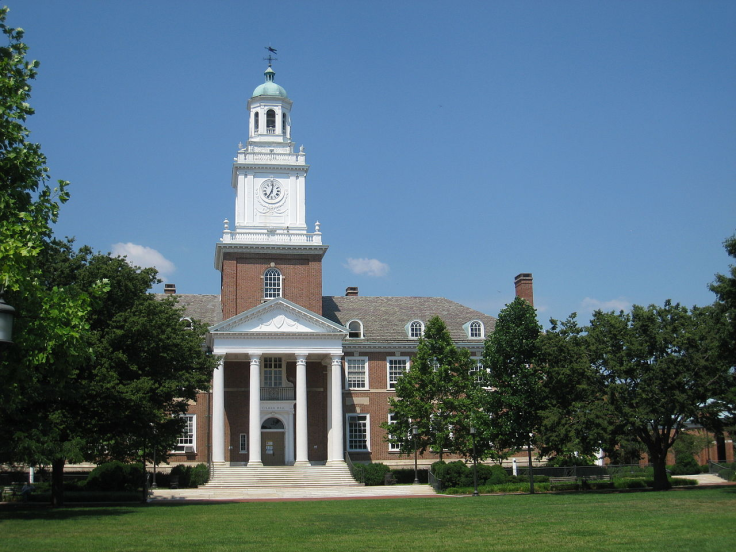Bloomberg Donates $1 Billion to Make Medical Education Free at Johns Hopkins, Redefining Access to Healthcare Professions
ByThe $1 billion gift by Michael Bloomberg, the largest in history, to Johns Hopkins University will be dedicated to effecting a sea change in the way medical education is conducted at that institution.
More specifically, this vast donation aspires to lift the cost burden for medical students so that each talented individual can dream and go ahead with an attempt to become a healthcare professional without keeping in mind the huge debts they will incur someday.

Opening Wide Access to Medical Education
According to Bloomberg Philanthropies, the organization handling multibillionaire business entrepreneur Michael Bloomberg's vast and genuinely heroic philanthropic effort, this gift will allow "the most talented aspiring doctors from diverse socio-economic backgrounds [...] to graduate debt-free from Johns Hopkins." Next fall semester, the school plans to grant full tuition flat-out to medical students from families making fewer than $300,000 in annual income. Medical students from families earning up to $175,000 annually will receive support for living expenses and additional fees.
On the critical impact of the initiative, Michael Bloomberg, former Mayor of New York City and a proud alumnus of Johns Hopkins said, "The high cost of medical and graduate school too often bars students from enrolling at a crucial time when the United States faces a shortage of medical professionals." Now, students will be in a better position to pursue their heart's desire and serve desperate communities in dire need of health care by removing these financial barriers.
READ MORE : Albert Einstein College Of Medicine Adopts Tuition-Free Policy After Historic $1 Billion Donation
Broader Impact on Health and Education
The donation is part of a wider movement by elite institutions to reduce the burdens being placed on medical students by making it tuition-free. In addition, other universities have followed suit within the past few years. For example, the Albert Einstein College of Medicine campus in the Bronx took up tuition-free education after receiving a gift worth $1 billion from Ruth Gottesman, a longtime professor. In 2023, Kenneth G. Langone and his wife Elaine donated $200 million to NYU Long Island School of Medicine to cover tuition costs.
In 2018, Michael Bloomberg previously donated $1.8 billion to Johns Hopkins to ensure undergraduate admissions were need-blind and boost financial aid. Already, that earlier gift has remade the university's student body, improving racial and economic diversity. Ron Daniels, the president of Johns Hopkins University, emphasized that eliminating financial obstacles enhances excellence, fosters innovation, and leads to discoveries that benefit society.
Diverse and Well-Trained Medical Workforce
Bloomberg's new gift will have a striking effect on present and future medical students. This new gift would make nearly two-thirds of medical students at Johns Hopkins eligible to pursue their education without any cost. Updated financial aid packages, including this new funding, will be sent to the students, with immediate relief from this overwhelming burden of debt that would otherwise pile up.
José Luis Castro, president and chief executive of Vital Strategies, called the gift "transformational and inspiring." He said the gift would help to "meet the increasing demand for doctors and public health professionals." Many experts in medicine and education argue that depending solely on family finances to pursue a medical career could restrict access and diversity in the field.
Holly J. Humphrey, president of the Josiah Macy Jr. Foundation, notes that rising medical school tuition has particularly impacted students from lower-income backgrounds. Their median debt was $200,000 for class 2023-staggering, to say the least, making many applicants shy away. Reducing this financial burden will help more students from diverse backgrounds pursue an education in medicine and hence lead to better health outcomes. There is evidence that when attended by doctors of similar backgrounds, especially in minority communities, the care their patients receive is of better quality.
Future Implications and Broader Support
The gift of $1 billion to Johns Hopkins will surely spur a new precedent and give inspiration to other philanthropists for their support in investments in medical education. Experts emphasize that these investments are crucial as the U.S. faces a shortage of healthcare professionals, preparing future doctors, nurses, and public health experts for national needs.
Michael Bloomberg's substantial contribution raises his total support for Johns Hopkins University to an impressive $4.55 billion. At this level of giving, it has allowed the institution to set its bar higher in everything from its very scope and impact in education to public health. With this recent gift, Hopkins is uniquely positioned to lead the way in making medical education more accessible and more affordable, ultimately for the good of society.
© 2025 University Herald, All rights reserved. Do not reproduce without permission.








